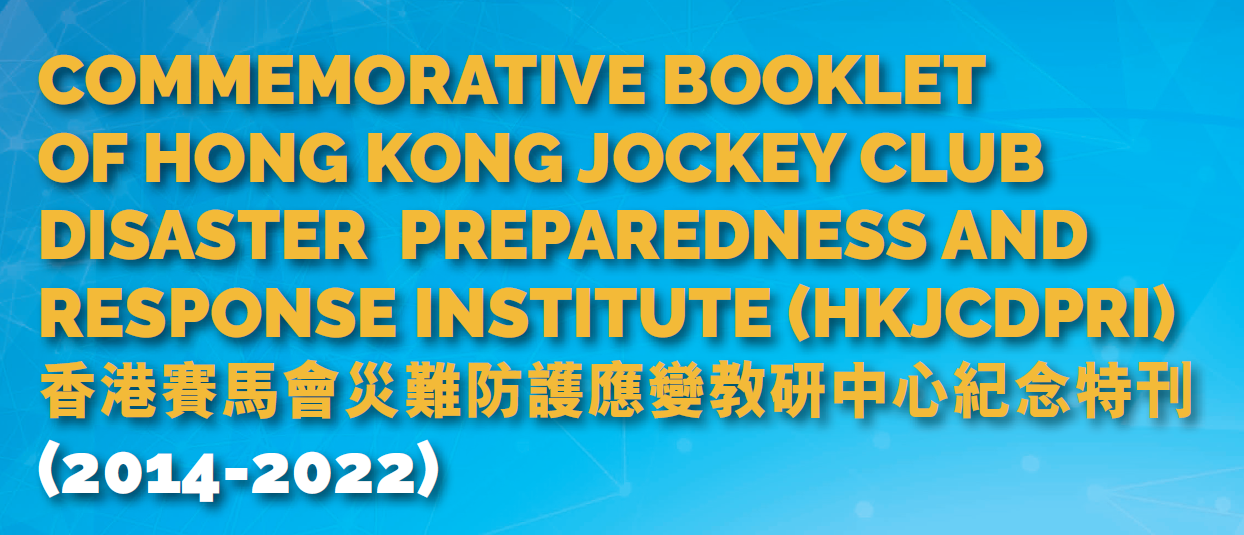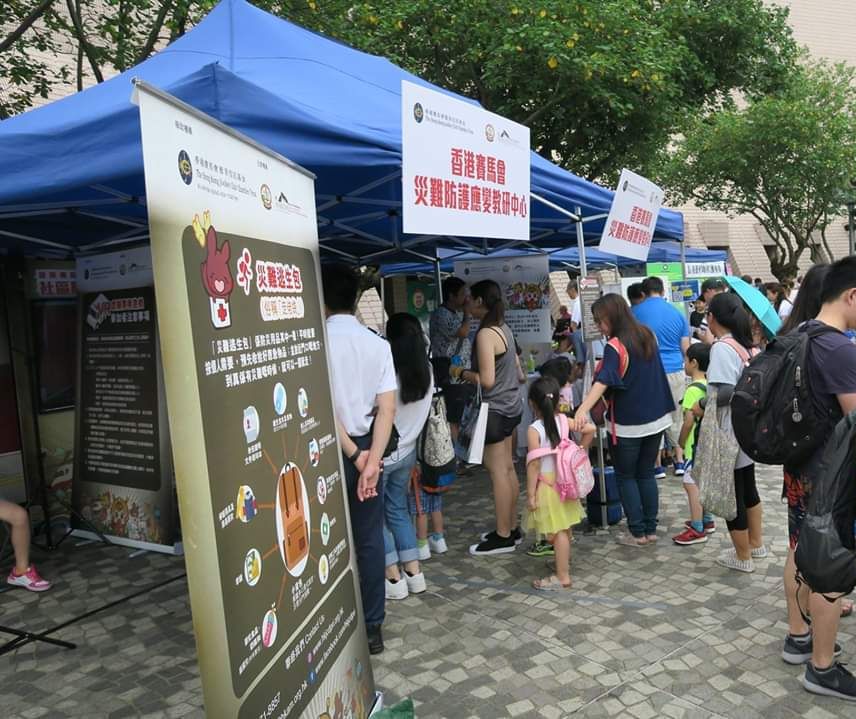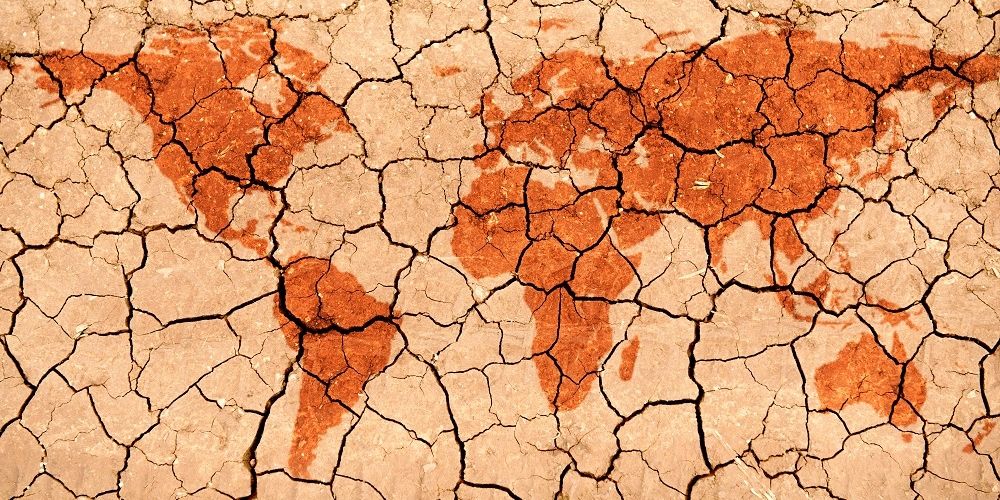You are here
Upcoming Events & Training Courses
Upcoming Events & Training Courses
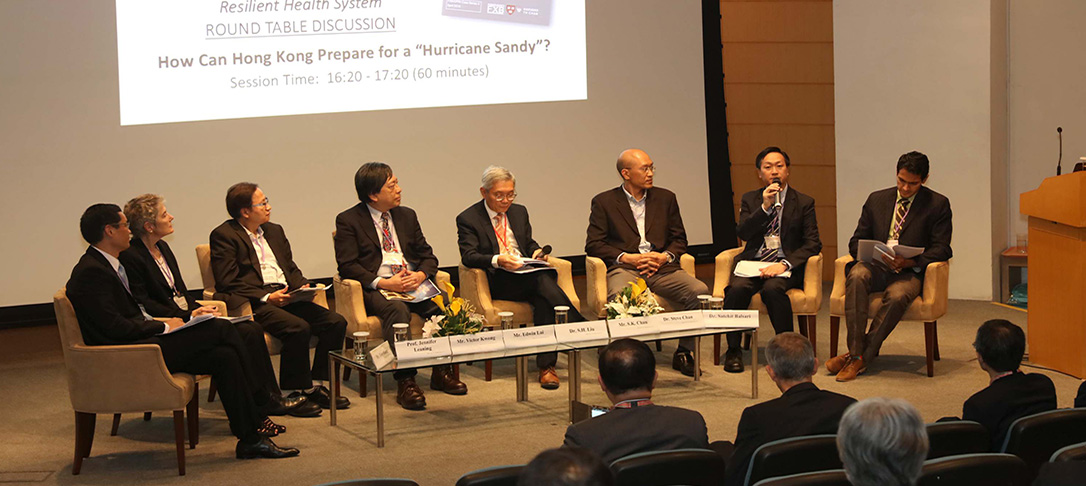
Upcoming Events & Training Courses
2016
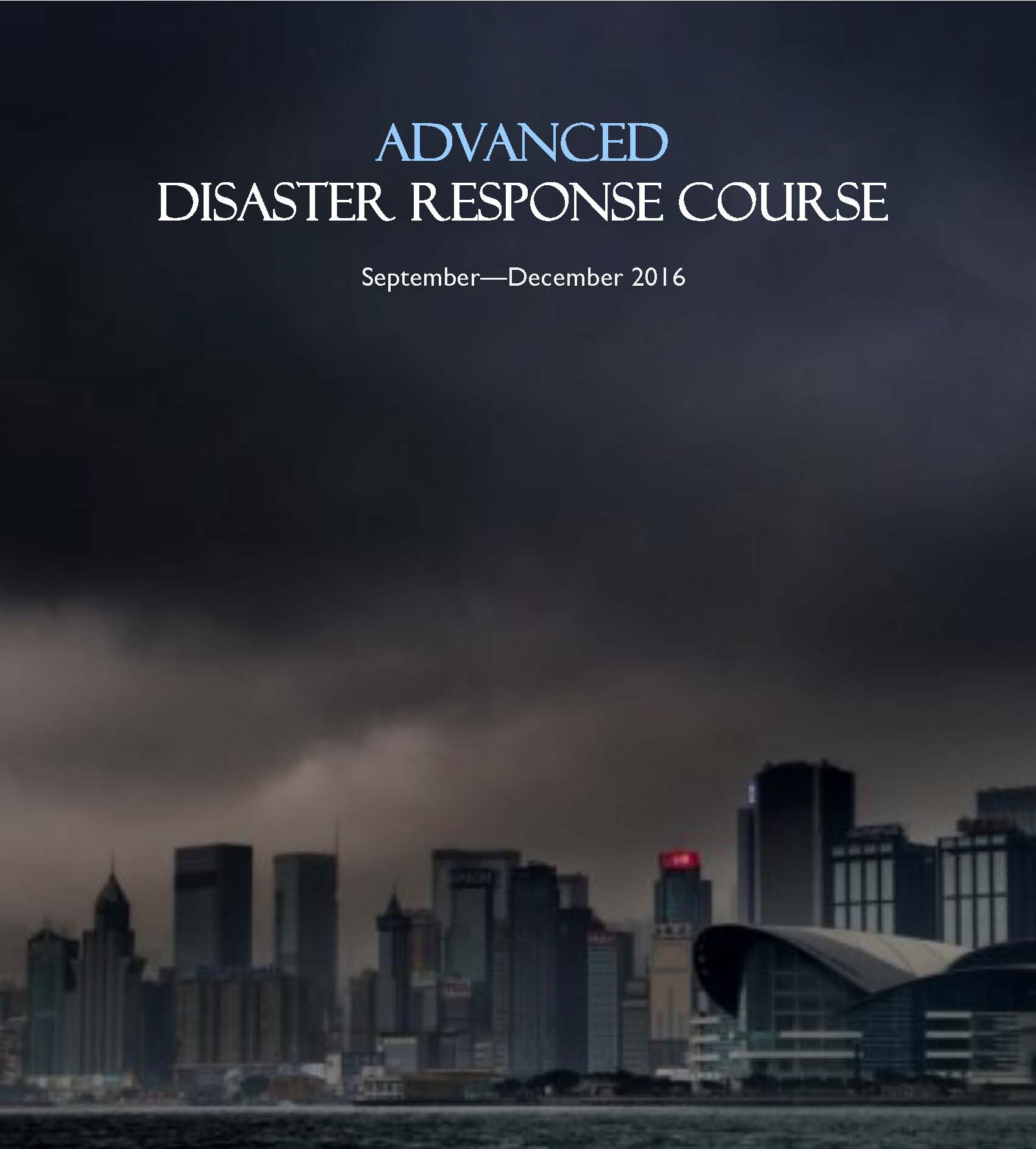
The first Advanced Disaster Response Course (ADRC),organised by the Disaster Medicine Subcommittee of the Hong Kong College of Emergency Medicine and supported by the Hong Kong Jockey Club Disaster Preparedness and Response Institute, commenced in September 2016. The course was organized over four days within the duration of 24 September - 3 December 2016, with a main theme for discussion for each day. The topics included “Urban Humanitarian Emergencies”, “Incident Categorisation”, “Hospital Planning and Response” and “Urban Disasters and the World”.
In total, 32 students enrolled for the course, including 19 doctors, nine nurses, two ambulance officers and two hospital managers. Throughout the course, participants developed the knowledge and skills to prepare health care facilities for effective response, to ensure continuous operations during and after disasters, and to recover for the better from the impacts of disasters. Interactive simulation exercises throughout the course provided an opportunity for participants to practice the skills and knowledge learned during the course.
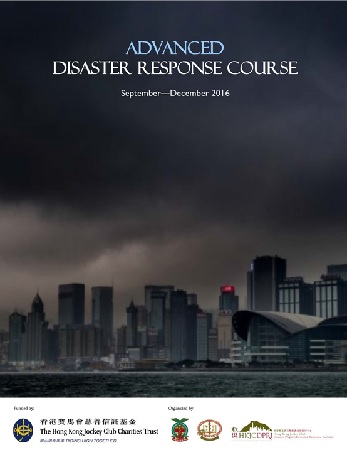
For more detailed information about the course, please contact HKJCDPRI secretariat at [email protected] or at 2871 8507, or visit http://disaster.com.hk/advanced-disaster-response-course/
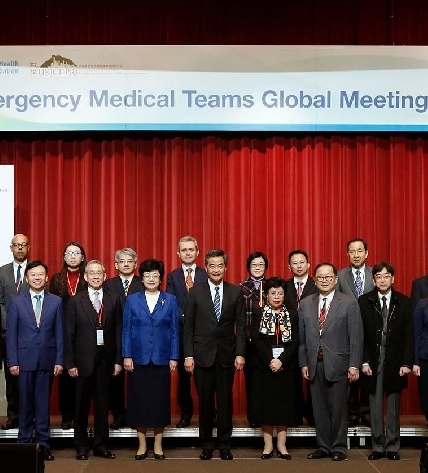
Co-organised by the World Health Organization (WHO) and HKJCDPRI, the second WHO Emergency Medical Teams (EMT) Global Meeting has been successfully held on 28-30 November...
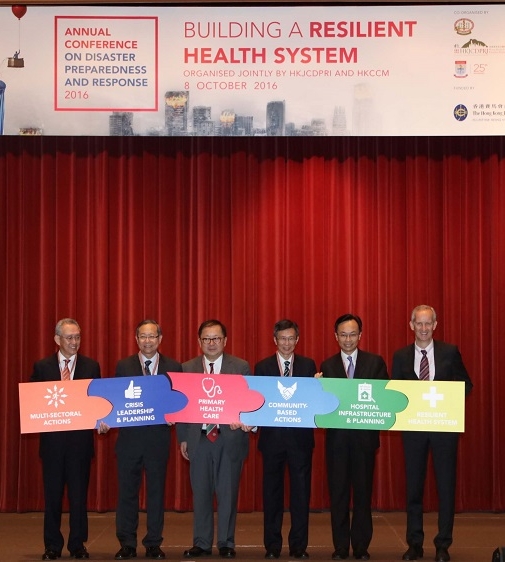
The Annual Conference on Disaster Preparedness and Response (ACDPR), themed "Building a Resilient Health System", was held on 8 October 2016 at the Hong Kong Academy of Medicine Jockey Club Building. The Conference was co-organised by HKJCDPRI and the Hong Kong College of Community Medicine (HKCCM)...
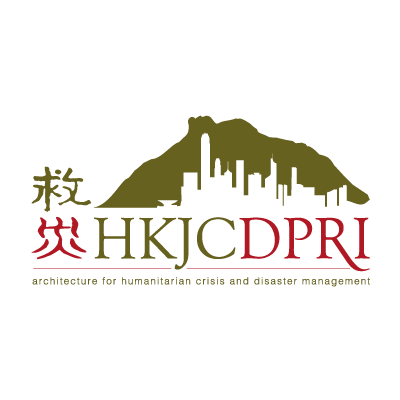
A newly developed Master of Public Health module on disaster response is to be delivered under the Master of Public Health programmes at the Chinese University of Hong Kong (CUHK). Designed for professionals and disaster and humanitarian workers with emphasis on practical applications and state-of-the-art knowledge, the module, which consists of two courses, is offered as part of postgraduate study programmes and alsoavailable as an individual short course.
The module is a joint achievement of the Collaboration Centre for Oxford University and the CUHK for Disaster and medical Humanitarian Response (CCOUC) of the Faculty of Medicine of the CUHK, the Harvard University, and the Hong Kong Jockey Club Disaster Preparedness and Response Institute (HKJCDPRI).
Emergency Risk Communication in Disaster and Humanitarian Crisis
Course Coordinator: Gloria Kwong Wai-chan
Course Description
In a crisis, every word counts. The need to communicate risks as accurate as possible in a timely manner arises as much from public expectation as professional need. Communication not only helps build resilience of the community but also prevent disease, disability and death, and restore dignity of the people facing disasters. This course offers theoretical yet practical framework of effective advocacy and emergency risk communication in an evolving media landscape, and covers cases ranging from outbreaks to natural disasters in humanitarian settings.
Learning Outcomes/Objectives
After completing this course, students should be able to:
- Understand the principles and issues of emergency risk communication in disaster and humanitarian settings;
- Demonstrate a strong awareness of various communication models in different phases of emergency management;
- Realize the challenges and opportunities to engage media in disaster management programmes;
- Reflect on partnership and timely engagement with the public in crisis;
- Conceptualize and apply the knowledge to develop an effective communication strategy in disaster and humanitarian crisis.
Course Schedule
Session | Date/time | Topic |
1 | 29 Oct 2016 (Sat) | Critical Function of Communication in Disaster and Humanitarian Crisis |
2 | 29 Oct 2016 (Sat) | Communication and Warning |
3 | 12 Nov, 2016 (Sat) | Communication and Crisis Development and Outcomes |
4 | 19 Nov, 2016 (Sat) | Communication and Emergency Response |
5 | 19 Nov, 2016 (Sat) | Working with Media |
6 | 26 Nov, 2016 (Sat) | Crisis and Risk Emergency Communication in New Media Landscape |
7 | 26 Nov, 2016 (Sat) | Stakeholder and Partner Communication |
8 | 3 Dec, 2016 (Sat) | Putting theory into practice |
Fee
Application Fee: HK$100
Course Fee: HK$8 800
Global Health Perspectives of Humanitarian Crisis & Human Security
Course Coordinator: Prof. Emily Chan / Prof. Jennifer Leaning (Harvard T.H. Chan School of Public Health)
Course Description
This course aims at providing an overview of interconnections between health and human security in the context of globalization and forced migration of many causes. Specifically, the course will examine how the changing humanitarian and human security landscape, for instance the current context of conflict, brought the two fields closer and the challenges presented for human security and global health. On top of classroom lectures and tutorials, this course provides series of seminars offer by speakers in the field of disaster and humanitarian crisis to allow students to follow current topics in this area.
Learning Outcomes/Objectives
By the end of this module, students are expected to be able to:
- Describe and explain the principles of humanitarian and human security and how they impact health access and outcomes;
- Understand the current state of human security and how it affects global health inequalities;
- Apply human-security frameworks, tools and methods to participants’ fields of practice;
- Discuss the impact of forced migration due to conflict and disaster;
- Acknowledge the breadth the of the study of humanitarian issues;
- Reflection on the importance of addressing humanitarian issues in the contemporary world.
Course Schedule
Session | Date/time | Topic |
1 | 5 Oct 2016 | Introduction to Human Security Frameworks |
2 | 6 Oct 2016 | Conflict and Post-conflict Settings |
3 | 7 Oct 2016 | Vulnerable Populations |
4 | 11 Oct 2016 | Global Migration |
5 | 13 Oct 2016 | Disasters and Security |
6 | 14 Oct 2016 | Case Study: The 2015 Nepal Earthquakes |
7 | TBC | Seminar series on disaster and humanitarian crisis |
Fee
Application Fee: HK$100
Course Fee: HK$8 800
Application deadline of the above courses is TWO weeks before the programme commences. For further information about the courses, please visit: http://www.sphpc.cuhk.edu.hk/. Should you have any further enquiries on the courses, please kindly contact Ms. Carman Mark ([email protected]). |




